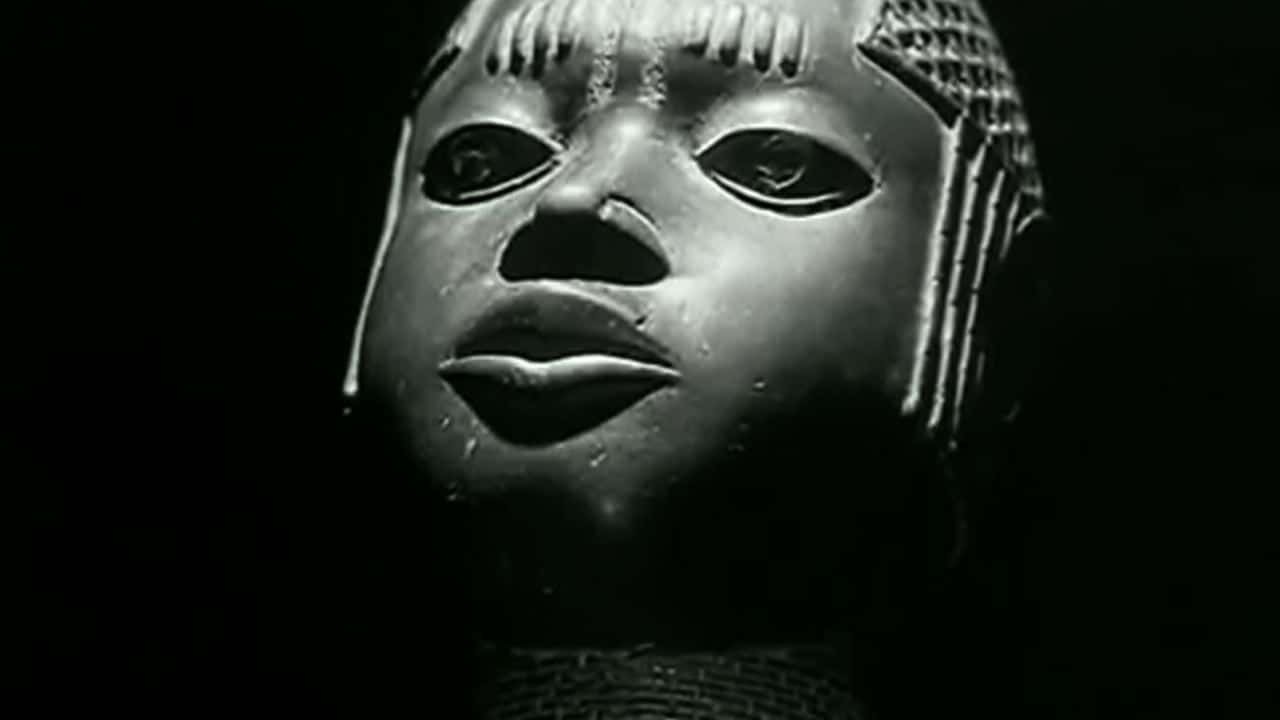The arts interrogated in this programme are more than spaces: they are worlds. These statues, sculptures, paintings, photographs, cinemas and videogames each span multiple terrains, constructing new webs of meaning, new realities with their own unique logics.
In Mulvey and Wollen’s film, Frida Kahlo & Tina Modotti (1983), both artists’ imaginary landscapes compose worlds with their own varied topographies of individual and collective identity. Or in Cortazar’s Cuban short, For the First Time (1967), Charlie Chaplin’s film offers villagers a glimpse at the Hollywood planet, with its distinct visual languages, settings and values.
But what is at stake in these five films is the task of (re)animating these worlds to oppose the colonial condition. Voiceovers invite us to scrutinise how arts can become tools in colonial domination. In Statues Also Die (1953), the European museum is a stagnant repository for African sculpture. The narrator tells us that “this botany of death is what we call culture”; the rich, lived, contingent meanings of the statues on show (many still owned by the British Museum today) were destroyed by the European plunder of Africa since the 19th Century. In Culture Capture: Terminal Adddition (2019), the same phrase – ‘botany of death’ – is used to describe statues of Native Americans that contribute to North America’s inability to comprehend ongoing settler colonialism. But here, the statues are optically scanned, transformed into an oscillating, pulsating explosion of digital noise. Technology, perhaps, can subvert the mechanics of domination.
The promises - and limitations - of technology are explored further in Faris Shehadeh’s Like An Event In A Dream Dreamt By Another - Rehearsal (2023). Set in the Grand Theft Auto (GTA) universe, Palestinian artist Firas Shehadeh examines the practice of ‘modding’ by Palestinians, as Los Santos (a satirical Los Angeles) is made into a virtual Palestine. In his 2008 ethnography of the open-world videogame Second Life, Tom Boellstorff argues that online virtual worlds are unique in one key aspect. Unlike the other arts in this programme (for example, the personal and political landscapes of Frida Kahlo’s paintings), the gameplayers themselves do not act as spectators but as world-builders; the virtual world itself is democratically ‘modded’ over time. In Culture Capture: Terminal Adddition, scanning is resistance. In Event in A Dream…, resistance is building. Within GTA Palestine, players make a world where they can, as in Shehadeh’s title, ‘rehearse’. Rehearse building, rehearse resistance, rehearse freedom, rehearse violence, rehearse death.
But there is a profound melancholy to Event In A Dream…. The slow voiceover produces vast swathes of empty sonic space. The modded GTA Palestine is pushed to the periphery of the frame. Diegetic sound from the gameplay is muted and sparse. We are quietly trapped in this imaginary world where the Israeli police still roam, Israeli flags still plaster the metropolis and Palestinian avatars are dressed in militant garb. Modding GTA is a critical act of creation, but not one that can escape the limitations placed on the lives of Palestinians under occupation and in exile. The final words of the film speak volumes. “The players are not going to Los Santos to die. They are going to find out if they were ever alive.”
Ben Stoll
